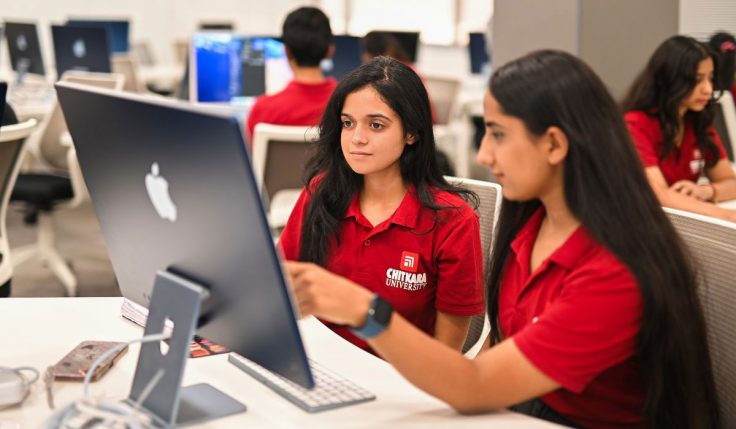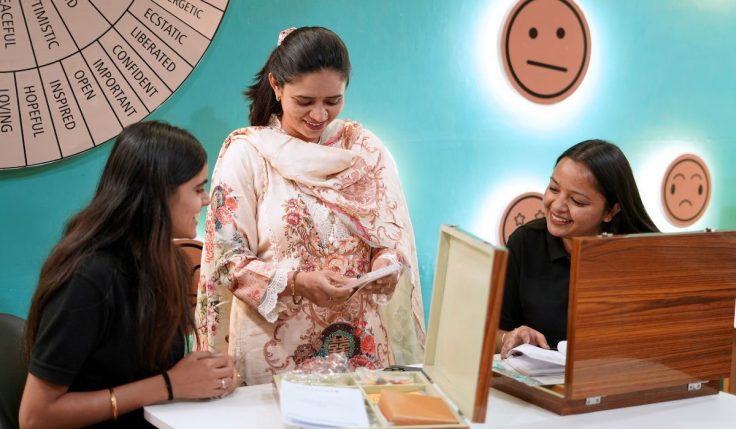As we move into the digital age, optometry is changing a lot. In 2024, universities and institutes are using the latest technology and tools to help students get the job skills they need and make them get jobs more easily. Let us explore the changes that have been made to Optometry Education, mainly in the B. Optometry program, and the many tools that are making learning different in 2024.
Learning About Optometry: In Optometry students are taught how to care for eyes, keep them healthy, and help people understand what they see. The two worlds of healthcare and technology meet here. Bachelor of Optometry (B. Optometry) schools teach people everything they need to know about the eye and how to get eye doctor licenses.
Optometry Education in 2024: The digital age has brought about a new era for optometry education, where digital tools and technologies are used along with or instead of traditional methods. In 2024, these are the most important changes and trends that will affect optometry education:
Online platforms for learning:
E-learning Revolution: Online tools are now an important part of optometry education because they allow a wide range of students to learn in their own time and in different ways.
Interactive Modules: Video lessons, virtual exercises, and interactive modules make learning fun and flexible for students with different learning styles.
Remote Access: Being able to get to course materials and tools from anywhere makes it easier for students to work together and works with their own plans.
Also Read: A Clear Vision for Your Future: How to Enter the World of Optometrists
Virtual reality (VR) in optometry education: Immersive learning: VR is changing the way practical training is done by giving students real-life experiences with detecting and healing eye problems.
Risk-Free models: Virtual patient models let students practice clinical skills without any risk, which helps them get better before they use those skills in real life.
Uses of augmented reality (AR):
Better Anatomy Learning: augmented reality apps offer realistic anatomy lessons that let students see the eye’s complex structures in three dimensions.
Interactive Models: 3D models let students move and see how body parts are put together, which helps them learn more about eye anatomy.
How to Do Well in Optometry School in 2024:
Eye exam simulators:
- Realistic Scenarios: High-tech models make realistic optometry situations so that students can practice diagnosing and treating patients.
- Instant Feedback: Simulators give students immediate feedback, which helps them improve their skills and gain confidence in a safe learning setting.
Apps for phones for optometry students:
- Learning on the Go: Mobile-optimized educational apps make it easy for students to review ideas and study whenever and wherever they want.
- Interactive Resources: Mobile apps like flashcards, quizzes, and reference books make learning more fun and easy to get to.
Teleoptometry Hardware:
- Getting Ready for Telehealth: As telehealth grows, teleoptometry platforms give students the chance to do online eye care appointments, which is a skill that is becoming more useful in modern practice.
- Virtual Patient Interactions: Students practice their ability to give good care in a variety of settings by interacting with simulated patients.
The B. Optometry Program: The B. Optometry program has changed to keep up with these technology advances, adding new tools to give students a well-rounded education. Now, there is a good mix of academic information, useful skills, and time spent using the newest technologies in the program.
As Optometry Education in 2024 moves into the digital age, it’s important for both students and pros to keep up with the newest tools and technologies. Adding modern tools not only makes learning more fun, but it also puts optometry grads at the top of a field that is changing quickly. The next generation of optometry education is here, and it holds lots of exciting opportunities for those who are ready to seize them.
Chitkara University’s Bachelor of Optometry program offers a transformative journey towards a successful career in eye care. With a duration of four years, including three years of rigorous study and a one-year internship with leading organizations in eye care and optometry across India, the program prepares students comprehensively for the dynamic field. Eligible candidates with a minimum of 50% in class XII with PCM/PCB can apply, and a dedicated placement team ensures individualized mentoring for optimal career opportunities.
The program, initiated by Chitkara School of Health Sciences, integrates conceptual and analytical skills, providing a robust technical knowledge base. Students undergo comprehensive eye examination training, clinical specialties, diagnostics, and management of visual system disorders. Beyond theoretical knowledge, emphasis is placed on practical experience, including a one-year internship at reputed tertiary eye care organizations. This hands-on approach is complemented by small-group sessions, transferable skill development, and exposure to the most in-demand industry skills.
Chitkara University’s Optometry program emphasizes flexibility and career choices. Graduates can work in eye hospitals, clinics, optical outlets, or multinational vision care companies, specializing in areas such as Binocular Vision, Contact Lens, and Low Vision. The university’s top-rated status and collaborations with leading organizations ensure that students receive extensive industry exposure and experiential learning opportunities.






